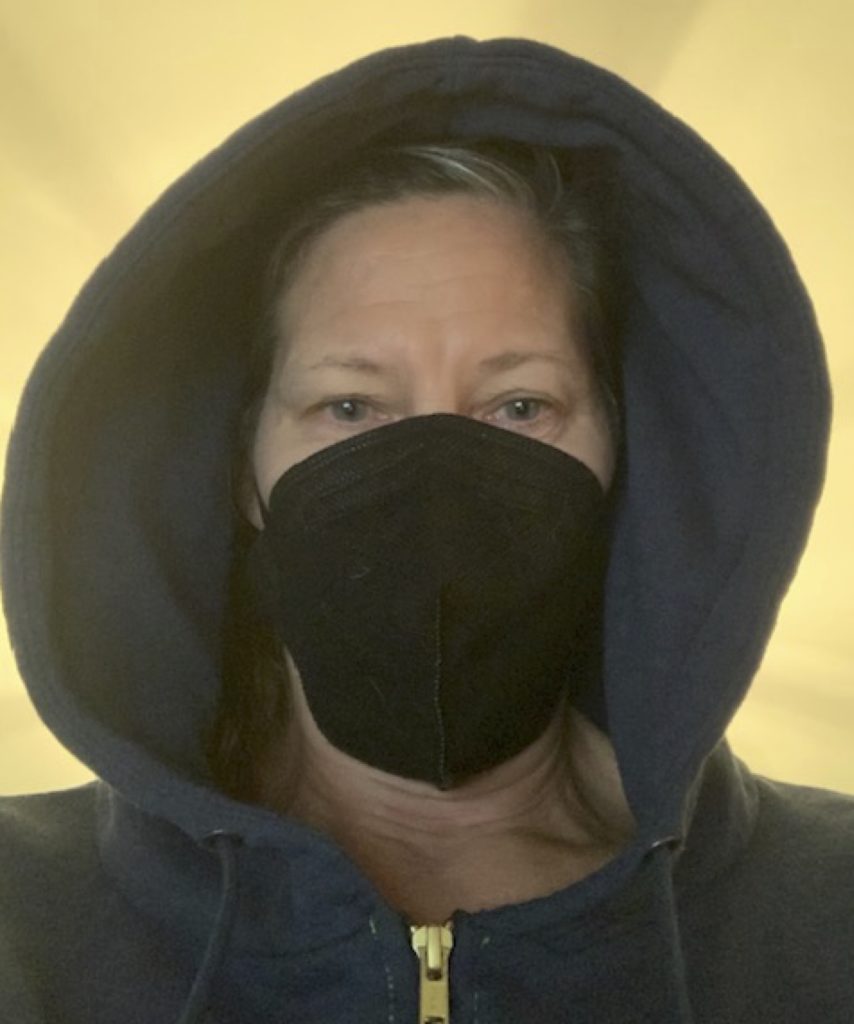Whelp, adventure can have its downside.
I haven’t written lately because we’ve been doing what this blog is about – traveling and adventuring. Orlando, Myrtle Beach, Miami, and around DC – that was all great-ish, and we’ll delve into those excursions on upcoming blogs, but at this very moment, I must admit, adventuring in the age of Covid has a downside. And that downside is Covid.
We made it through all the far-away trips, becoming increasingly emboldened to no longer follow Covid masking and distancing precautions. Then two of us were infected likely on an adventure just three miles from our house.
Last weekend, we took various jaunts over to National Harbor to take Jeffrey to compete in the K-12 National Chess Championships, and since it was an all-weekend affair with lots of downtime, we also partook in various holiday activities, ranging from gingerbread house making to ice tubing.
I’m not going to sugar-coat it – everywhere we went and everything we did was crowded. Put nearly 2,500 chess players, families, and tournament staff on top of the typical holiday season crowds at National Harbor, and you wind up with long lines and crowded spaces.
Jeffrey wore a mask most of the time we were there. The rest of our family – and most visitors also at the venue, did not. We’d gotten into the habit of sometimes wearing them, sometimes not, and hadn’t gotten Covid. The outcome? My husband and I caught Covid, while Jeffrey and his siblings continue to test negative.

We’re okay – congested and tired, but our symptoms are mild. We’re lucky. Most of us know people who have been hospitalized or even died from Covid – I don’t in any way want to compare what we are going through with the awful situations of millions of other Covid-impacted Americans. But still, we do have Covid, and we’re in crowded company.
Currently, an estimated 68,000 people in the U.S. get infected each day. In the last seven days, more than 32,000 have been hospitalized – nearly 4,000 of them in intensive care. An average of nearly 400 people still die from it each day.
And we’re heading into several major holidays when people gather. The current predominant strain of COVID-19 is BA.5, which is more easily spread than its predecessors because “it evades immunity from past COVID-19 infection and vaccination. That means even if you were infected with delta or omicron BA.1, you can still get BA.5.”
I try not to have a lot of regrets – if things don’t go well, I try to learn from the experience and do better the next time. But I do regret not wearing a mask last weekend. Now I’m wearing a mask around my children and having to stay away from them as much as possible. And I know, despite our efforts, I still might get them sick. That is something else I would regret.
This all must be especially hard on my neurodiverse kids. Outwardly, they’re doing okay, but having both of your parents sick with a highly contagious virus that could infect you next, has to be disconcerting. I thought this interview with Dr. Lawrence Fung, Director of the Stanford Neurodiversity Project (SNP), and the Adult Neurodevelopment Clinic was insightful.
According to Dr. Fung, “The anxiety caused by COVID-19, the physical distancing, and disruption of daily routines are intertwined. Together with other factors involved in the pandemic, they have caused a lot of new challenges for the neurodiverse community.”
Disruption is of course not what any neurodiverse parent hopes for – it can lead to any number of unintended and challenging consequences. So this is just a reminder as we make our way through the busy holiday season – Covid is still very much out there, and very infectious. Masking and distancing can prevent transmission, as can vaccination, and where it doesn’t prevent infection, it can reduce severity. In our case, it certainly seems to.
I wish you all a happy and Covid-free holiday season.

